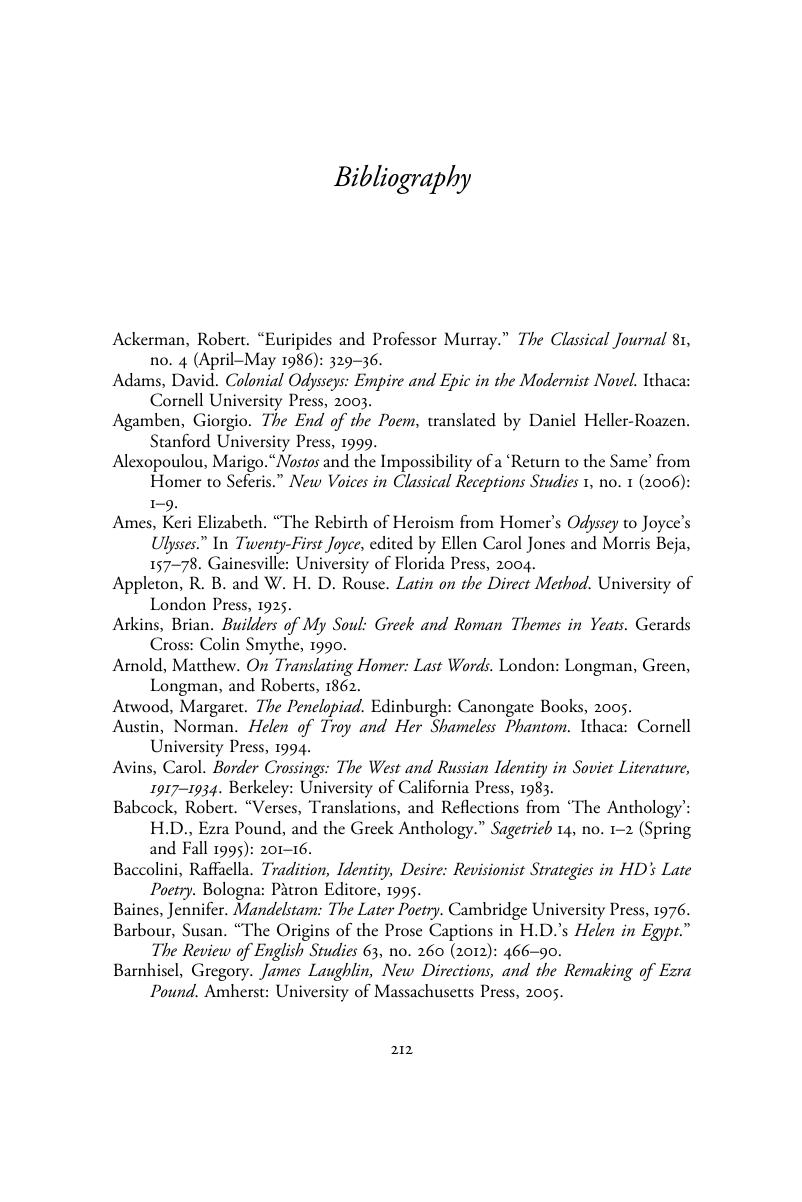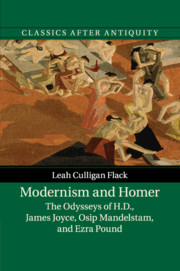Book contents
- Modernism and Homer
- Classics after Antiquity
- Modernism and Homer
- Copyright page
- Dedication
- Contents
- Series editors’ preface
- Acknowledgements
- Abbreviations of frequently cited texts
- Introduction
- Part I High modernism and Homer
- Part II Late modernism and Homer
- Book part
- Appendix Russian text of Osip Mandelstam’s poems
- Bibliography
- Index
- References
Bibliography
Published online by Cambridge University Press: 05 October 2015
- Modernism and Homer
- Classics after Antiquity
- Modernism and Homer
- Copyright page
- Dedication
- Contents
- Series editors’ preface
- Acknowledgements
- Abbreviations of frequently cited texts
- Introduction
- Part I High modernism and Homer
- Part II Late modernism and Homer
- Book part
- Appendix Russian text of Osip Mandelstam’s poems
- Bibliography
- Index
- References
Summary

- Type
- Chapter
- Information
- Modernism and HomerThe Odysseys of H.D., James Joyce, Osip Mandelstam, and Ezra Pound, pp. 212 - 223Publisher: Cambridge University PressPrint publication year: 2015



